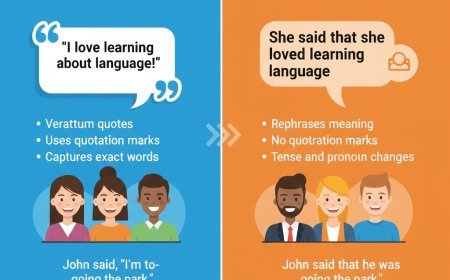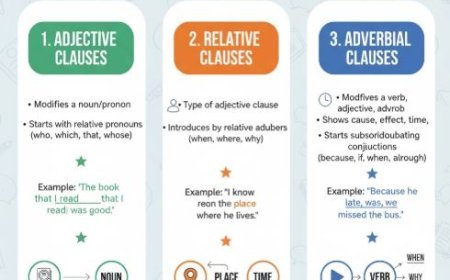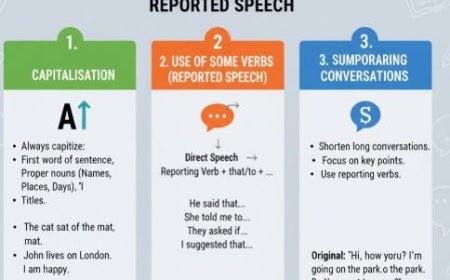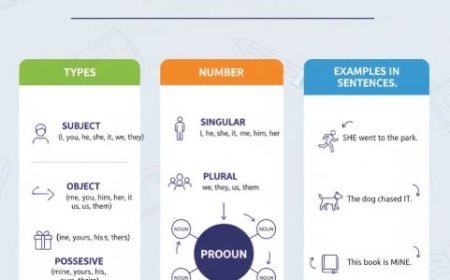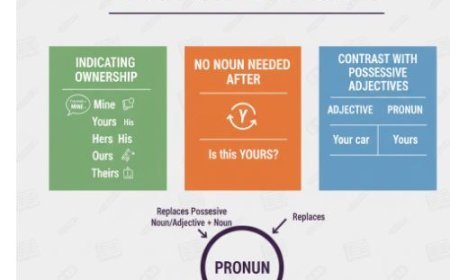ADJECTIVE, RELATIVE AND ADVERBIAL CLAUSES
Master clauses (adjective, relative, adverbial) for accurate storytelling.
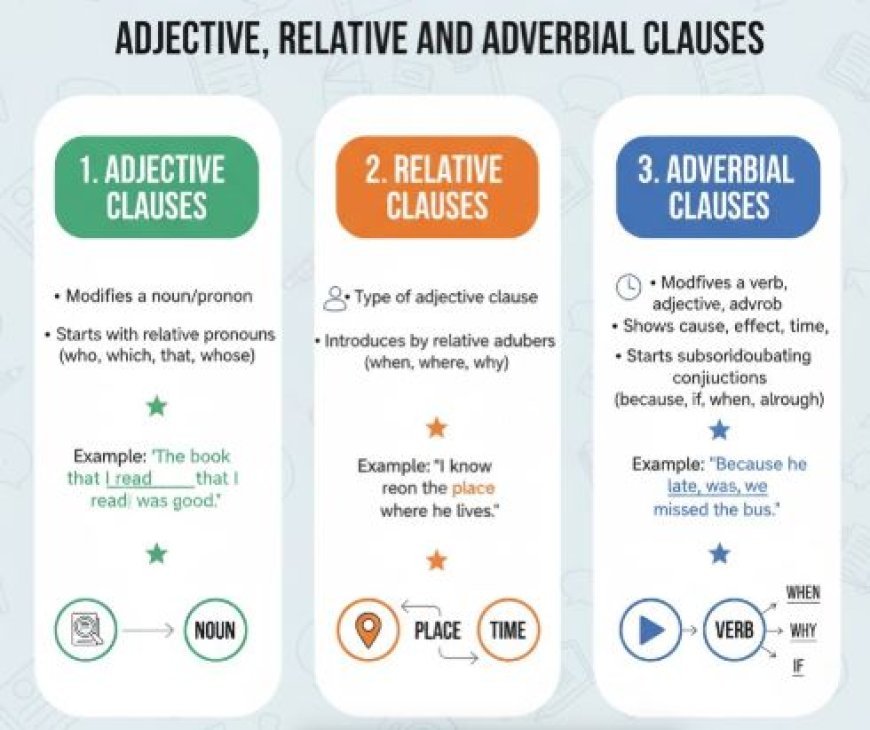
ADJECTIVE CLAUSES
- Dependent clauses that modify a noun or pronoun in the main phrase are called adjective clauses, often referred to as relative clauses.
- They provide additional information about the noun or pronoun, giving more detail or specificity to the sentence.
The Purpose of Adjective Clauses
- Adjective clauses serve to add more detail and description to a sentence, making it more specific and interesting.
- They often begin with relative pronouns such as 'who,' 'whom,' 'which,' or 'that.'
- These pronouns serve as the subject or object of the clause and connect it to the main clause. For example, in the sentence 'The book, which was written by my favorite author, is now a bestseller,' the adjective clause 'which was written by my favorite author' provides more information about the book, making the sentence more descriptive.
Using Relative Clauses
- Adjective clauses can be used in different ways depending on their purpose in the sentence.
- They can be used to identify or define a noun, provide additional information, or give examples.
- For example, in the sentence 'The girl who won the race is my sister,' the relative clause 'who won the race' identifies the girl as the subject of the sentence.
- In the sentence 'I bought a house that has a big backyard,' the relative clause 'that has a big backyard' provides additional information about the house.
Adverbial Clauses and Their Position in a Sentence
- Adverbial clauses, on the other hand, are dependent clauses that modify the main clause by adding information about time, place, reason, or condition.
- They often begin with subordinating conjunctions such as 'because,' 'although,' 'while,' or 'if.' Unlike adjective clauses, adverbial clauses can be placed at the beginning, middle, or end of a sentence.
- For example, in the sentence 'Although she was tired, she still went to the party,' the adverbial clause 'although she was tired' is placed at the beginning of the sentence.
- In the sentence 'I will go to the store after I finish my homework,' the adverbial clause 'after I
finish my homework' is placed in the middle of the sentence.
What's Your Reaction?

















